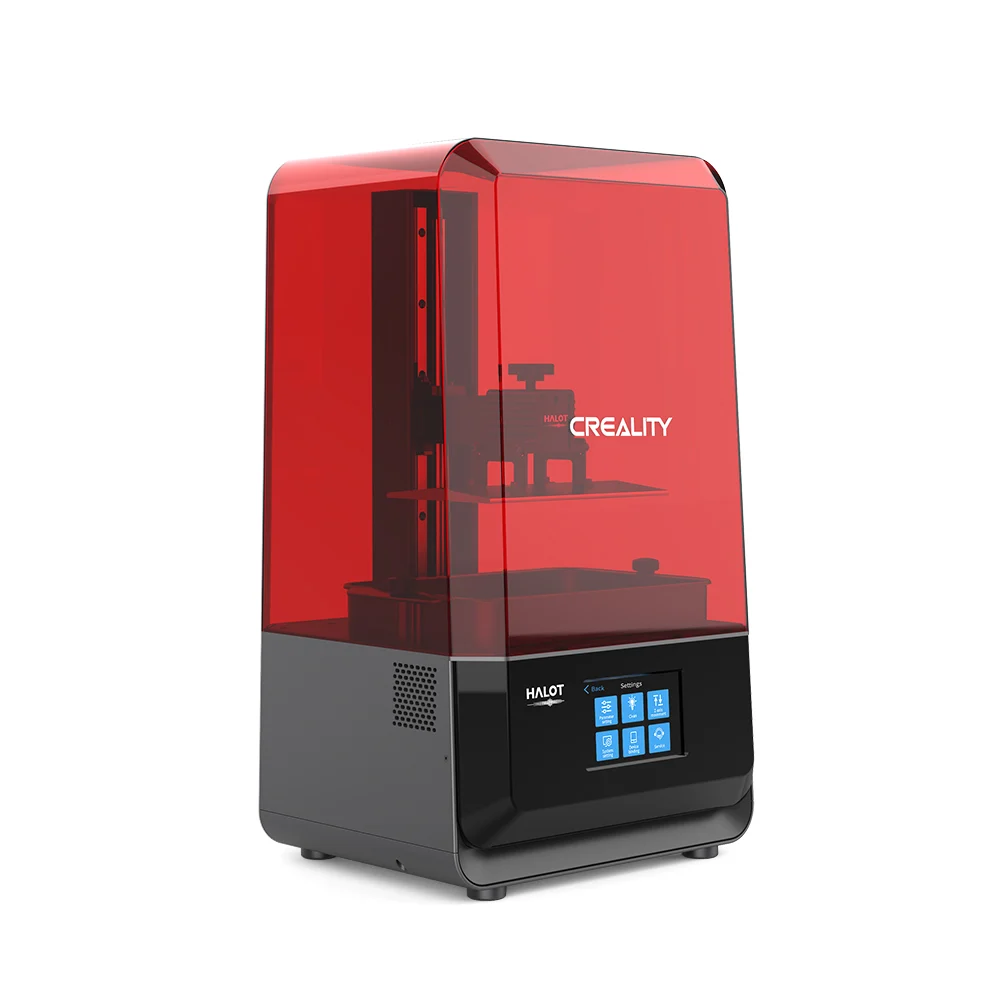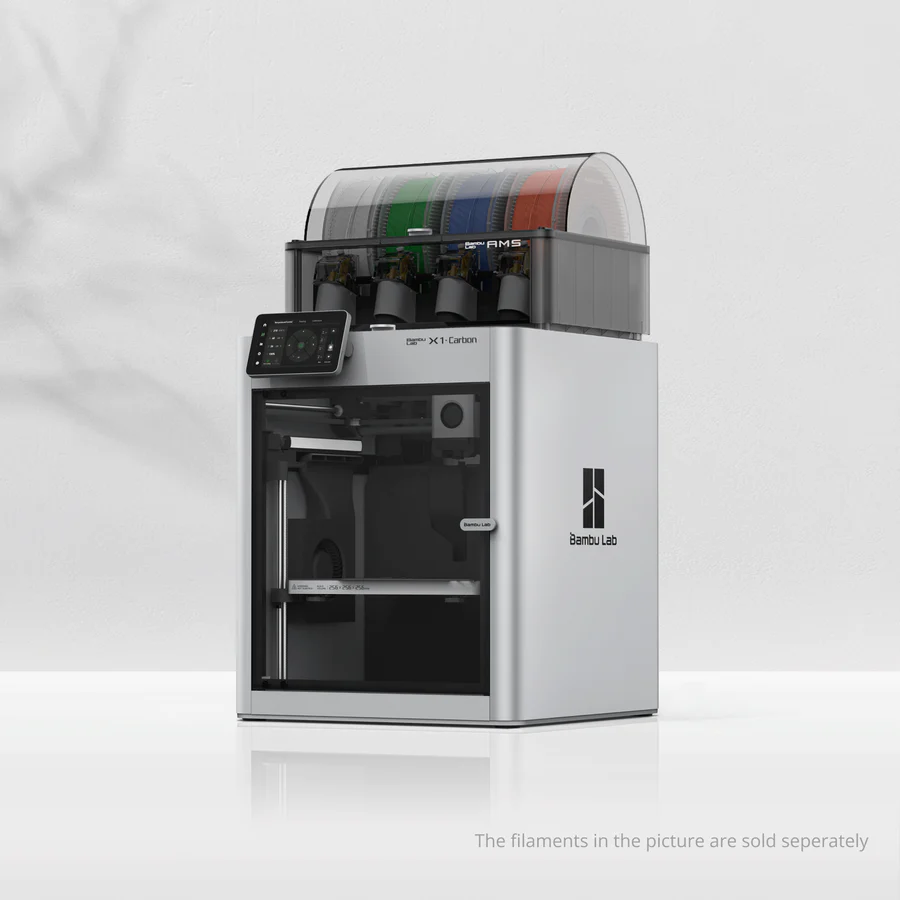Compare Halot Lite vs X1 carbon
Comparison between the best 3D printers
Choose the best 3D printer at the best price. The cheapest 3D printers are here.
Buy a 3D printer here with 3D Fila.
 |
 |
|
| Model | Halot Lite |
X1 carbon |
| Printing Material | Resin | Filament |
| Buy Resin for Creality 3D Halot Lite | Buy Filament forBambu Lab X1 carbon | |
| Estimated price | $400,00 | $1449,00 |
| Manufacturer | Creality 3D | Bambu Lab |
| Release Year | 2021 | 2023 |
| Print Volume [mm] | 192x120x200 | 256x256x256 |
| Printer Size [mm] | 330x301x572 | 389x389x457 |
| Weight [kg] | 10,6 | 14,13 |
| Power Loss Recovery | NO | YES |
| Maximum Resolution [mm] | 0,01 | 0,1 |
| Processor | Quad ARM A7 1.2 GHz | |
| Display | Display touchscreen 5'' | Touchscreen 5'' |
| Power Supply | 350 W | |
| Connectivity | SD / USB | Wifi, Bambu bus, Cartão SD |
| Operating systems | Windows, Mac, Linux | Windows, Linux, Macbook |
| Date of registration in the system | 2022-11-04 | 2024-04-10 |
| Release date | 2021 | 2023 |
| Extra features | Crealitys Halot Lite printer stands out in the mid-size resin 3D printing segment, with a build volume of 192 x 120 x 200 mm and 50 micron resolution. It offers a monochrome LCD for fast and durable printing, and an upgraded light source that ensures over 80% uniformity across the print bed. It includes Wi-Fi connectivity for remote control and updates, an ARM Cortex CPU for efficient performance, and is compatible with Halot Box and Lychee slicing software. It also has an activated carbon filter to reduce odors. | The Bambu Lab X1 Carbon revolutionizes 3D printing with stunning design, high print speeds, and a streamlined user experience. It stands out with its CoreXY system, a hotend capable of reaching 300°C, allowing for a wide range of filaments. Its LiDAR-assisted bed leveling system, vibration compensation, and AMS multicolor printing capability raise the industry standard. Print quality is impressive, with the ability to fine-tune for perfection. The X1 Carbon, with its closed build volume, not only promises but also delivers one of the most advanced 3D printing experiences available to consumers. |
| Support for multiple colors and materials (AMS and CFS) | NO | YES |
Notes * |
||
| Cost-benefit | 8 / 10 | 7 / 10 |
| Hardware | 1.2 / 10 | 6.4 / 10 |
| Tela | . | . |
| Print volume | 3 / 10 | 4 / 10 |
| Performance | 9 / 10 | 4 / 10 |
Conclusion |
| In conclusion, the comparison between the Creality 3D Halot Lite and the Bambu Lab X1 Carbon highlights significant differences tailored to varied user needs and budgets. The Halot Lite offers an impressive entry point into resin 3D printing with a lower price, a decent print volume, and features designed for fast and efficient printing, making it a strong choice for hobbyists or those just starting in the 3D printing realm. Its solid performance and cost-effectiveness are reflected in its favorable cost-benefit rating. On the other hand, the Bambu Lab X1 Carbon represents a premium option, integrating advanced technologies and a larger print volume, appealing to more experienced users or professionals seeking versatility and high-quality output. The X1 Carbon’s cutting-edge features such as LiDAR-assisted leveling and support for various materials position it at the forefront of consumer 3D printing, although it comes at a considerably higher price point. Ultimately, the choice between these two printers should be guided by individual priorities: budget, desired features, and the level of expertise in 3D printing. While the Halot Lite excels in affordability with good print performance, the X1 Carbon caters to those willing to invest in superior technology and capability for more complex and diverse printing tasks. |

